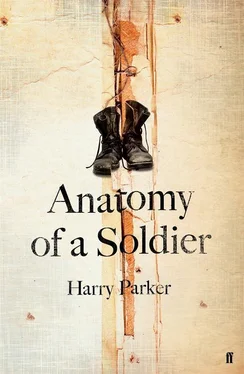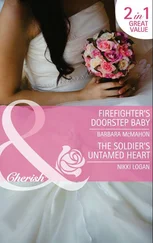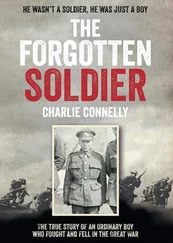He picked me up and carefully replaced everything and left me beside her on the floor. She slept but in the morning her son was her first thought, there was no moment of respite.
And then we were back with him. She placed me on a trolley-table and sat down. His chest still rose and fell, though she wondered if he was yellower or there was more strain on his face. She hoped the doctors knew, but what if they didn’t? What if there was something else they hadn’t noticed? One of the machines above him beeped and she looked over at a nurse who walked by unconcerned. She didn’t know what the digital numbers meant but she wished it wouldn’t sound like an alarm.
They came and took him away again and it was worse when he was gone. They needed to reopen and re-clean his wounds and she spent the time hoping nothing would go wrong. They’d signed consent forms and listened to the doctors’ explanations. She tried to understand their conversations but bent all her concentration on him — everything she had, to help him get better — and now she felt the helplessness of not being able to do anything.
She carried me through the corridors to the canteen even though she didn’t like being away. She threw her half-finished coffee in the bin and went back to wait for the doctors to update them.
We were back in the room with the lighthouse and the television was on and then her husband turned the lights off. I was on the bedside table and her eyes were open all night staring at me from the pillow. In the morning she dressed, picked me up and went back to him.
And then he woke up. He forced himself from sedation earlier than expected and they came and said he was conscious and took us to him.
I was on the trolley-table as they both stood over him and he looked back up at them.
‘I’m sorry, Mum,’ he said.
I was made in China, a genuine copy. The man who sold me didn’t want a place in the market so he sat in a backstreet, away from the crowds — his customers knew where to come. He didn’t sell very much: a few mobile phones; T-shirts, one with an American musician holding up two fingers above strange western script; a selection of batteries, loose in a box; and, hidden away, a pile of illegal magazines. The air was humid in the alleyway. A pool of stagnant water along the gutter attracted flies and thirsty dogs.
I was in a cardboard box beside the blue plastic crate he sat on.
Latif knew where to find the stallkeeper; his new friends had told him. He was nervous. He hadn’t handled this much money before and he fumbled the dollars awkwardly as he glanced over his shoulder at the people who passed in the bright district-centre bazaar. The stallkeeper inspected each note and nodded before he presented my box to Latif.
I was too big for Latif but the man only had me. Latif pulled my laces tight until my eyes met and the fabric creased up over his toes. He didn’t know how to tie my laces, so he knotted them and pushed the excess down beside his ankle. He removed my twin from the box and slid it onto his other foot. I was bright white and my reflective patches glinted in the alleyway.
He’d only ever worn sandals and I made his foot feel fire-hot as he walked back to the throng of people who pressed around the market. He was embarrassed by how strangely I flashed below his traditional trousers.
I was cotton and laminated plastic, rubber with foam, chunky and gleaming with black ticks on each flank. I was alien among a sea of worn leather sandals that shuffled between the stalls.
We walked out through the streets and jumped into the back of a truck. Men sat on benches down both sides with goods from the market; one had a goat that wriggled between his legs. We drove into the fields. The other men glanced down at me and then up at Latif’s young face. He shifted and looked away over the fields.
I was a badge, a uniform. I set Latif apart: a symbol of his choice.
At a crossroads the truck stopped and we jumped down. Latif paid the driver, then headed towards a village. My sole was soft and Latif grinned as he floated over the ground. And he started running and realised why his new friends had told him to spend his first earnings on me.
Latif stopped and scuffed me against the hard mud of the side of a ditch, trying to get me dirty so I looked battered and experienced — not how he felt but how he wished he did.
We walked into the village and down a track between high walls. Latif pushed at a red gate and we entered a compound. Chickens nodded around sacks of grain under a lean-to and a boy swept ash back into a fire pit.
A girl, sitting back on her ankles, spotted Latif and ran to greet him. She called him brother and grinned as she held his hand. He told her about the market and said he would take her one day soon when Father allowed it. He took a fig from his pocket and she smiled and bit into it then inspected me with surprise. She said with a full mouth how white we were and how strange we looked — how big on the end of his legs. She placed a grubby foot on top of me, and the other on my twin, and he walked straight-legged with her on us and they both laughed. He told her how comfortable I was and she laughed again and went back to a goat’s skin she was scraping dry.
He ducked through a doorway. He couldn’t untie his rushed knots so he levered me off and left me at the end of a row of burnished sandals.
Latif walked a few steps into the dark room. A man and woman stood at the back looking into a recess stacked with sacks and pots. She was explaining how many bags of rice and flour they had and how much more they would need. The man’s hand was on her shoulder and he nodded. He said he would ask his cousin if they could have some food but she looked at him and said how worried she was about adding to their debts this year. He muttered it would be fine and Latif would continue to help.
Then he turned and saw him and asked how the market was and if he had managed to sell the seeds. Latif greeted his father and poured tea from a pot in the centre of the room. He asked his mother if she needed more money for food. She smiled and said they were fine at the moment.
Latif sat cross-legged on a rug and drank the tea. His father walked over to step into his sandals and saw me. He picked me up and turned me over, running his dirt-lined fingers through the deep grooves of my tread and gel shock absorber. Latif watched him. His father placed me back on the floor and then looked at Latif before walking out into the compound. His mother had seen all this and looked away sadly.
That night, after his cousins and uncle had returned from the fields and his grandparents had walked the twenty yards across the compound from their room, they sat in a loose circle and dipped bread in soup.
They had all noticed me. I was too white for them not to. Latif felt defensive; the buying of me had created a distance from the family around him, and the comfortable silence that usually accompanied their meals was filled with judgement. Latif didn’t think he had changed but there was something about me, and his pride in me, that made him question it and he felt ashamed.
His cousin broke the silence and asked what would happen if Latif met the soldiers at work, adding that at least he’d be able to run away now. His mother was angry and sent them out. His smirking cousin and confused sister left.
His mother cried and asked why he wasted his money on infidel shoes, why he needed to do what he was doing. It was not their problem, they could ignore it. This was their world, this compound and their fields; they were happy and the soldiers hardly ever came here — why did he need to be part of it?
His father stilled her and said it was for the best and Latif was doing what he could for them — and making good money with the insurgents.
Читать дальше












